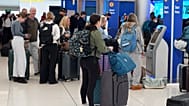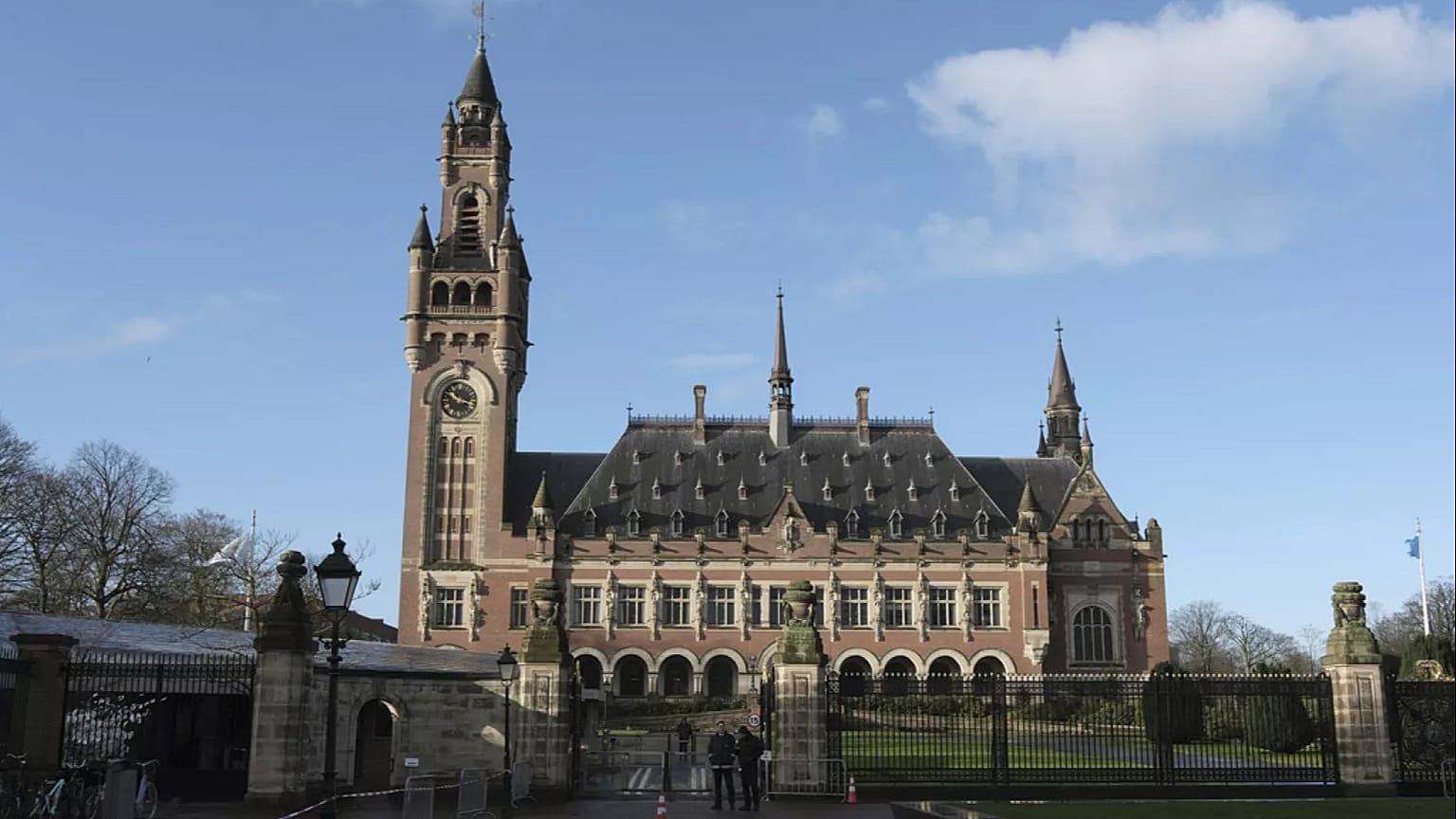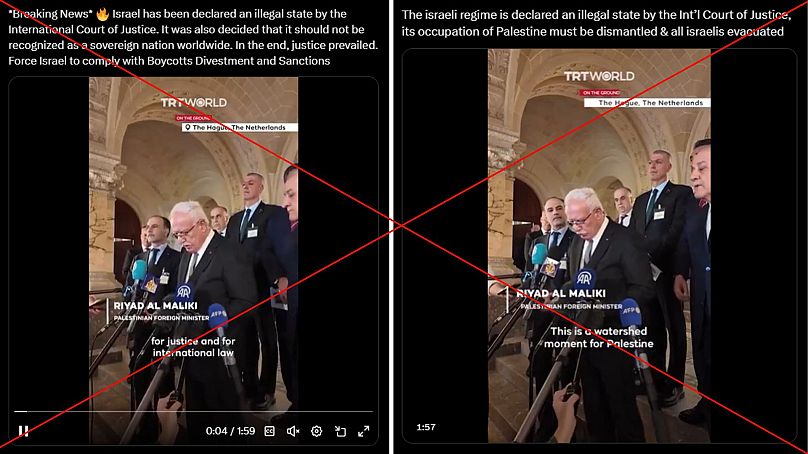The false claims have been shared repeatedly over the past few months.
Long-circulating false claims that the UN's highest court has declared Israel an illegal state have resurfaced online.
Various social media posts circulating in recent weeks show a video of former Palestinian Foreign Minister Riyad al-Maliki delivering a speech, in which he says that "Israel's occupation of Palestine has been declared unlawful".
He adds that the International Court of Justice (ICJ) court declared that the occupation violates the UN Charter of Human Rights, ordered Israel to cease its occupation as quickly as possible, and decreed that Israeli settlements in occupied Palestinian territory are illegal and should be dismantled.
The posts sharing the video present its contents as breaking news, and state that Israel has been declared an illegal state and should not be recognised as a sovereign nation.
These claims are not only false; they're also old.
The court has not handed down any such decision in recent weeks, and nor have credible reports of any such decision emerged. A search on X shows that the false claim has been repeatedly shared over the past year, with the video showing al-Maliki first published on 19 July 2024.
He delivered his speech in response to a real, non-binding ICJ decision, in which the court did indeed label Israel's presence in the Palestinian occupied territories as "unlawful" and called for an immediate end to the construction of settlements while condemning Israel's control over the lands it seized nearly six decades ago.
However, at no point did the ICJ declare Israel an illegal nation. Nor did it order other countries to stop recognising it as a sovereign state.
Responding to the ruling at the time, Israel's Prime Minister Benjamin Netanyahu said it was a distortion of historical truth and that the West Bank and East Jerusalem are part of the Jewish people's historical homeland.
Israel captured the West Bank, East Jerusalem, and Gaza Strip in the 1967 Six-Day War. The Palestinians aim to establish an independent state in these areas.
Israel views the West Bank as disputed territory, whose future should be determined through negotiations, and has established settlements there to strengthen its hold on the area.
According to Peace Now, an anti-settlement monitoring group, Israel has built more than 100 settlements in the West Bank, with the settler population growing by more than 15% in recent years to number some 500,000 Israelis.
Some 200,000 Israelis live in East Jerusalem, which Israel considers part of its capital. Palestinians in the city face systematic discrimination, hindering their ability to build or expand their homes and neighbourhoods.
The international community generally considers all three areas to be occupied territory.
















